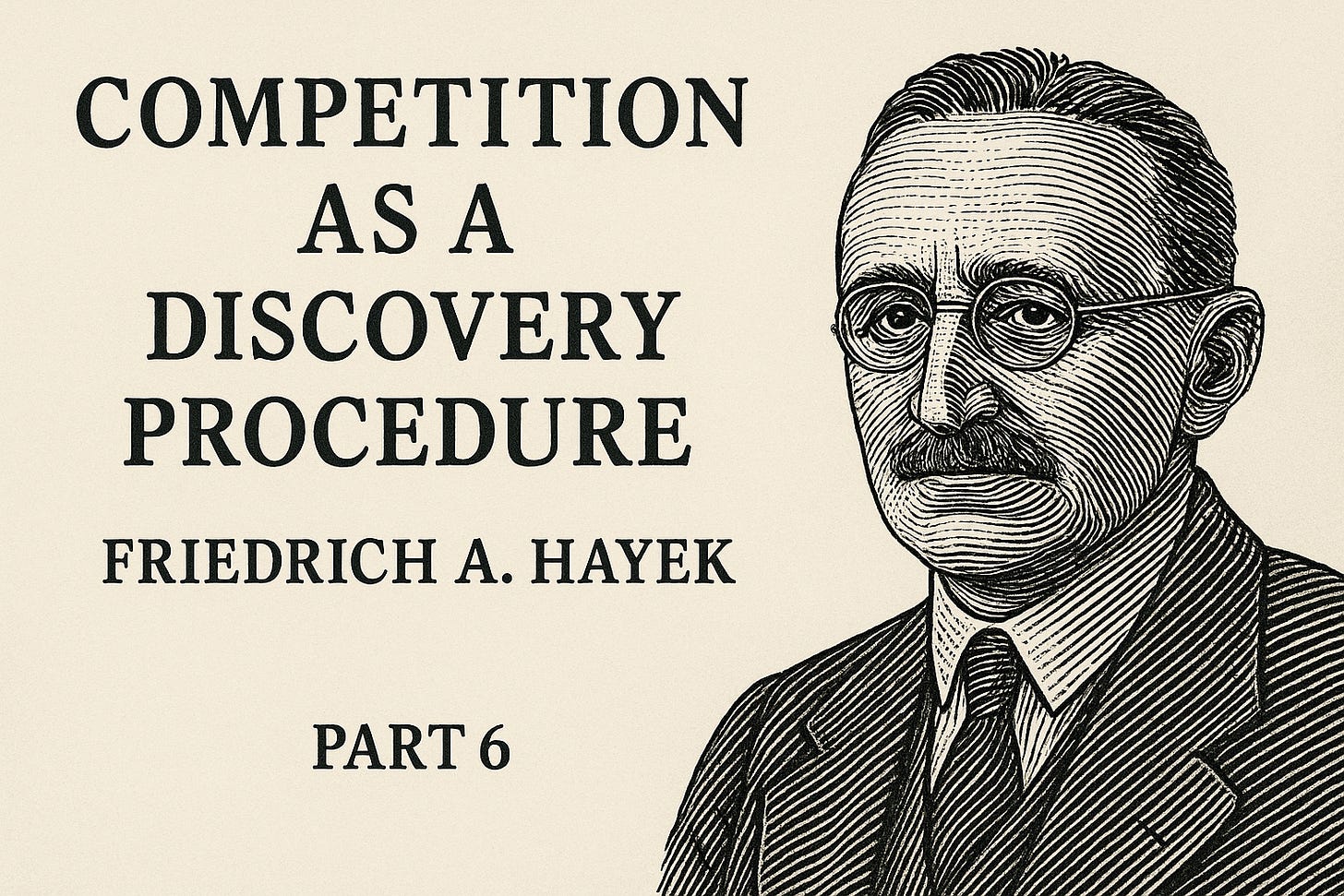Competition as a Discovery Procedure, Part 6
Markets aren’t perfect, but they’re unmatched when it comes to tapping into local knowledge and individual initiative.
This is HayekGPT, where I use ChatGPT to translate Friedrich Hayek’s most important essays into clear, modern English — as if Hayek were speaking directly to curious, everyday Americans today.
Here’s something that often gets overlooked: when we talk about economic growth, we usually act like something brand new has been invented — some new engine of prosperity. But in reality, what we call “growth” is often just the release of energy that was already there, waiting to be used.
That energy — in the form of human potential, creativity, entrepreneurship — is constantly being held back by bad policies, outdated customs, and restrictive rules.
Think about it this way: when a country suddenly takes off economically, it’s rarely because its people suddenly got smarter or more capable. It’s because the barriers that were holding them back — red tape, price controls, rigid laws, social taboos — got loosened or removed. And once those chains are off, the natural drive to improve, to build, to compete kicks in.
That’s why failure to grow isn’t usually about laziness or lack of skill. It’s about interference — from well-meaning policies that create more friction than freedom, or from customs that punish innovation and reward conformity.
Markets aren’t perfect, but they’re unmatched when it comes to tapping into local knowledge and individual initiative. And when you block that process — even in the name of equality or control — you don’t just get stagnation. You end up crushing the very process that drives growth.
The path forward isn’t more top-down control. It’s more room to experiment, to compete, to discover. When that happens, people surprise you — not because they changed, but because you finally let them try.
🔑 Core Ideas from Part 6
Growth doesn’t require magic — it requires freedom.
Progress happens when we remove the barriers holding people back.Entrepreneurship isn’t rare — it’s restricted.
People act when systems let them.Failure to grow is usually policy failure.
Bad rules, customs, and controls block discovery and progress.Prosperity is often waiting beneath the surface.
Loosen the restraints, and you’ll unleash it.Let people try. That’s the lesson.
When institutions make room for risk and initiative, the results follow.





